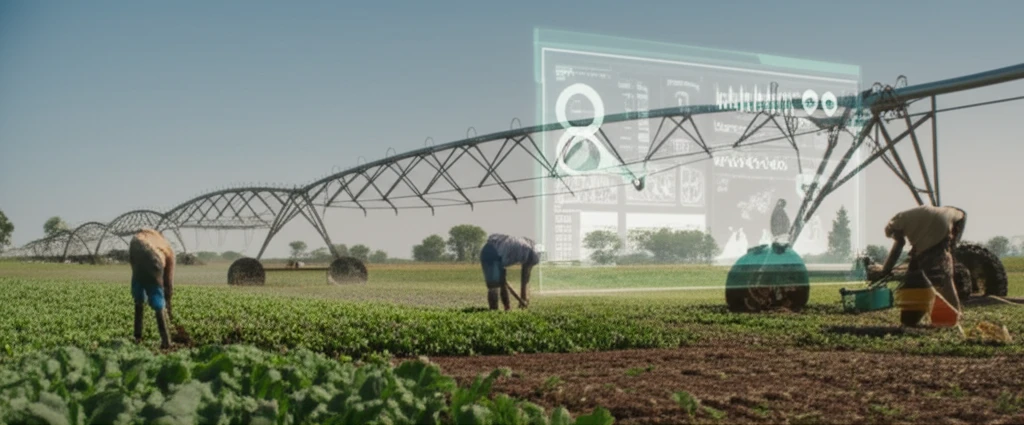
Unlocking Tanzania's Agricultural Potential: How to Empower Smallholder Farmers
"A deep dive into the challenges and solutions for enhancing rural livelihoods in Tanzania through agricultural transformation."
Despite impressive economic growth in Tanzania over the past decade, poverty reduction remains a significant challenge. A key reason for this is that the growth hasn't been inclusive, primarily benefiting sectors that employ relatively few people. Agriculture, however, remains the primary source of livelihood for the majority of Tanzanians.
This reality underscores the urgent need to transform the agricultural sector to improve livelihoods and foster inclusive growth. The focus must be on empowering smallholder farmers, who constitute the majority of the rural poor and depend on agriculture for their survival.
This article examines the challenges faced by these farmers and explores potential solutions, drawing on a comprehensive study of 3,000 farmers across 13 regions of Tanzania. We'll delve into the critical areas where government intervention and strategic investment can make the most significant impact, unlocking the vast potential of Tanzania's agricultural sector and improving the lives of millions.
The Hurdles Facing Tanzania's Smallholder Farmers

Tanzania's smallholder farmers grapple with a multitude of interconnected challenges that significantly hinder their productivity and overall well-being. A study involving 3,000 farmers across 13 regions revealed a consistent set of obstacles that demand urgent attention.
- Lack of access to affordable loans (69%)
- Inadequate subsidies for essential inputs (68%)
- Limited access to reliable markets (64%)
- Insufficient information on agriculture-related issues (61%)
- Recurring droughts that devastate crops (60%)
- Lack of access to quality and affordable seeds (58%)
- Limited access to pastures for livestock (57%)
- Shortage of technical advice and extension services (56%)
- High cost of quality fertilizers (50%)
- Inadequate agricultural infrastructure, including irrigation (46%)
- Limited access to water resources (45%)
A Path Forward: Recommendations for Sustainable Transformation
The findings of the study point to a clear need for government intervention and strategic resource allocation to revitalize Tanzania's agricultural sector. Farmers expressed that they most need a government response that includes access to quality and affordable seeds, expert advice, quality and affordable fertilizer, better infrastructure, subsidies, access to markets, information, affordable loans, pastures, and water.
However, governmental spending on the agricultural sector has declined for the past four years, the very sector that the majority of Tanzanians depend on for their livelihoods. There is a clear need for governmental involvement.
By prioritizing these key areas and increasing investment in agriculture, the Tanzanian government can empower smallholder farmers, boost agricultural productivity, and pave the way for sustainable and inclusive economic growth, in line with the country's Vision 2025.
